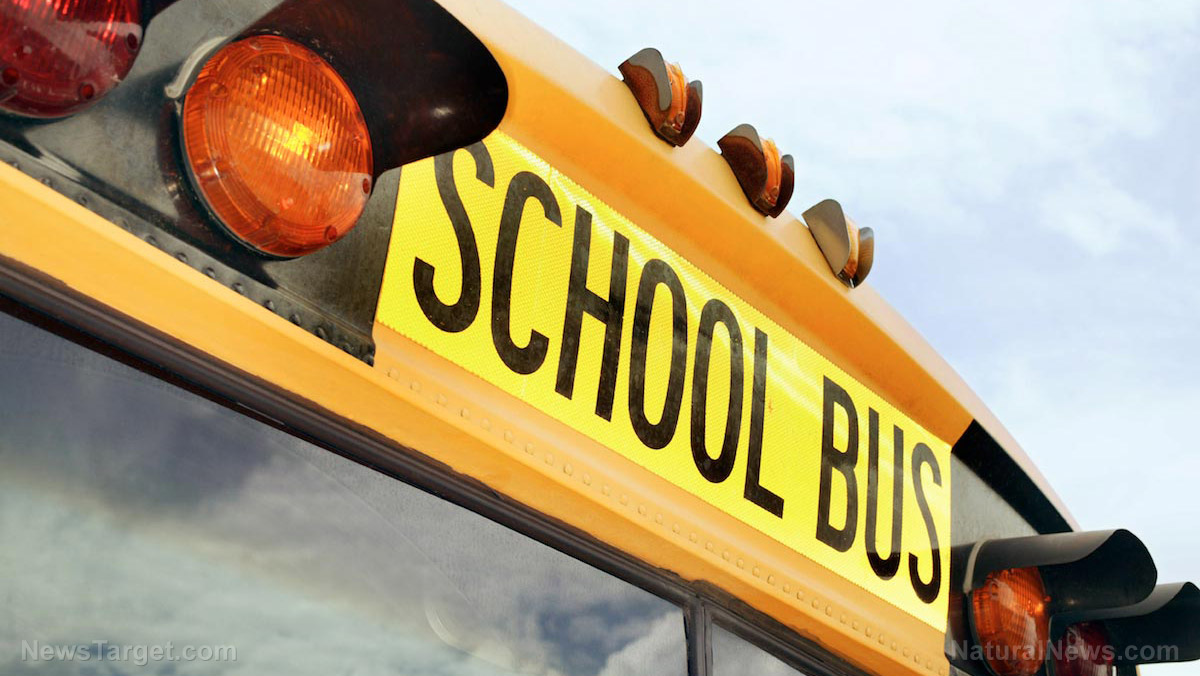Air pollution from daily travel found to impact the respiratory health of primary school children
07/26/2018 / By Michelle Simmons

The respiratory health of primary school children is at risk because of the air pollution from their travel to school and back home, according to a study. The study was carried out by a team of researchers from Hong Kong Community College who looked at the impact of daily travel air pollution to the respiratory health of primary school children.
In conducting the study, the research team involved a total of 850 primary school children aged 10 to 12 years from 12 randomly selected schools in Hong Kong. Each participant was tasked to record their daily traveling activities. In addition, they were given questionnaires regarding their indoor living conditions and respiratory health conditions.
The researchers also conducted a pulmonary function test on the study participants. They measured the air pollutants found in the routes to and from school of the children. The air pollutants found included particulate matters PM10 and PM2.5, carbon dioxide, carbon monoxide, and volatile organic compounds. Then, they conducted a statistical analysis to determine if there was a significant difference between the participants’ health and various modes of transportation.
Results revealed that most children, about 54 percent, travel by foot to go to school, while around 28 percent of them travel by school bus. It was also found that more than 25 percent of the participants have smoking family members within the house, thus they are exposed to secondhand smoke. Moreover, about 3.2 percent of the participants have asthma.
The research team discovered that the PM10 measured in school buses is about 20 percent higher compared to the content measured in other modes of transportation. In addition, traveling by school buses showed the largest value of all six air pollutants. These suggest that it has the worst air quality among all other modes of transportation. In contrast, the best air quality was found in railways, with low levels of carbon dioxide, carbon monoxide, and volatile organic compounds.

The researchers conclude that the air quality of different modes of transportation and indoor living conditions are factors that affect the lung function of primary school children.
Students who travel by school buses have the worst pulmonary function because of the poor air quality in school buses. On the other hand, those who traveled by railways to school have the best lung function. This is because railways exhibited the best air quality among the other transportation modes.
School buses and air pollution
Although school buses are the safest transportation to and from school for over 25 million children in the U.S. according to the Environmental Protection Agency (EPA), diesel exhaust from these buses adversely impact human health. Children are particularly at risk because they have a fast breathing rate and their lungs are not yet fully developed. Buses that are idle at schools can emit concentrated diesel exhaust emissions inside and outside schools, which can lead to lung damage when inhaled, and a likely cause of cancer.
The soot and gases emitted by diesel engines are also linked to acute eye, throat, and bronchial irritation, worsening of asthma and allergies, and possible disruption with lung development in children. Emissions of diesel do not only affect human health, but also environmental health as they contribute to ozone pollution, climate change, and acid rain. The EPA suggests to stop bus idling and replace old buses to reduce the emissions of diesel that pollute the air and harm human health.
If you’d like to read more news stories or studies on pollution, visit Pollution.news.
Sources include:
Submit a correction >>
Tagged Under:
This article may contain statements that reflect the opinion of the author





















